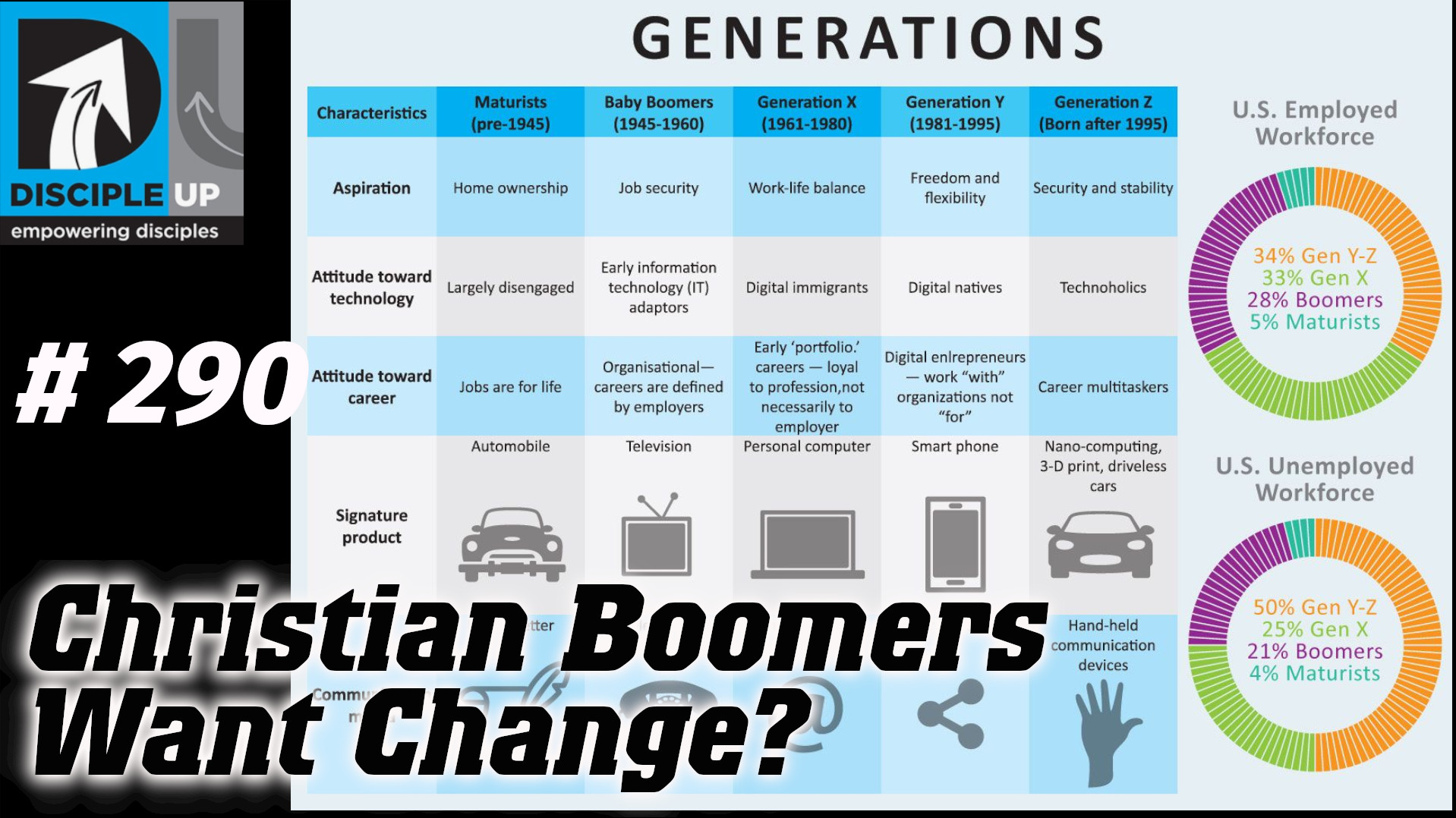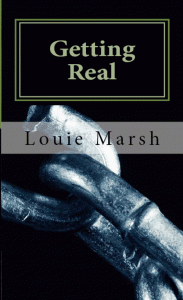Disciple Up #290
Christian Baby Boomers Want Change Too
By Louie Marsh, 1-12-2023
Here’s some excerpts from the article I read and commented on in this podcast…
https://broward.us/2023/01/04/christian-boomers-like-me-want-change-too/
Christian Boomers Like Me Want Change Too
Some of us are working to change the unhealthy evangelical church culture we helped create.
MICHELLE VAN LOON
JANUARY 4, 2023
In the last couple of decades, American Christian boomers (myself included) have been given an advance peek at the kind of obituary the church and the world has already begun to write about us.
Not all these critiques are made in good faith—whether they’re from political scientists, sociologists, op-ed writers, exvangelicals, or from the generations born before and after us—but a surprising majority of them are.
For example, CT’s Rise and Fall of Mars Hill podcast details the leadership failure and organizational implosion of the church franchise led by Mark Driscoll. And while Driscoll himself was a Gen X pastor, Mars Hill was nourished in the soil cultivated by boomer megachurch leader culture.
In a CT piece earlier this year, “The Church Is Losing Its Gray Heads,” Adam MacInnis offered a snapshot of many boomers who’ve exited the church building, even though “just under half of Christians over 40 who stop attending church feel they’re still practicing their faith.” Like some members of the younger generations, many boomers still love Jesus, but not the local churches they once attended.
The late Phyllis Tickle famously observed that the church engages in a kind of spiritual rummage sale that every 500 years or so—and in these times of “rearrangement and upheaval,” the “institutionalized church throws off things that are restricting its growth,” which allows a “more vital form of Christianity” to arise in the aftermath.
Michael Metzger of the Clapham Institute summed it up well: “To date, our legacy as Baby Boomers is indulgence, narcissism, and moralism. If we are to emerge as wise elders, our view of faith, fame and forever ought to migrate from Boomer biases to a more biblical Christianity.”
For one, Boomers played an outsized role in encouraging greater authenticity in the church.
We learned from our culture in the 1960s to let it all hang out. As that messaging filtered through the church in subsequent decades, it became more acceptable to share our struggles and questions in Christian community.
The unwritten rule of the churches I attended back then was that it was only acceptable to talk about your struggles if they happened before you were a Christian. SNL star Dana Carvey’s Church Lady character may have exaggerated church life for comic effect during the 1980s, but too many congregations back then seemed to encourage a religious facade.
Secondly, boomers have helped lead the movement toward both destigmatization and education of mental health issues in many evangelical streams.
There’s still much work to be done in how the church embraces mental health issues, but it has certainly come a long way over the past few decades.
Third, many boomers have joined, and in some cases are leading, the effort to create safe communities for those who have experienced church abuse.
Christian social media can be a cesspool of conspiracy theory, bullying, and wacky theological hot takes. But it has also been an essential connection point for survivors of abusive leaders or toxic congregations.
In The Four Loves, C. S. Lewis said that “the typical expression of opening Friendship would be something like, ‘What? You too? I thought I was the only one.’” Social media has created powerful fellowship as survivors discover they aren’t the only ones—and this has brought them together to drag into the light what has festered in the dark corners of the church.
Finally, many boomers are exhibiting a growing distaste for evangelical leader culture.
Perhaps the boom bubble in churches built around the pastor-as-CEO or spiritual Ted Talk gurus hasn’t quite burst, but it seems to be deflating—and few seem interested in reviving it.
While mostly anecdotal, I hear regularly from boomers who have been burned or are burned out from their nondenominational megachurches. Many are seeking simpler, more organic forms of gathering with other believers for worship and fellowship—or they’re finding their way into churches with formal liturgy and denominational structures.
And while we boomers of faith won’t be around to see how things unfold in the larger movement, we can spend the time we have left rewriting our own obituary.
This rewriting begins with the kind of unflinching humility prescribed in James 4:7–10—wherein we humbly submit ourselves to God and trust that he will uphold us. Only this heart posture will allow us to own our specific sins while recognizing the impact our generation’s proclivities have had on those who come after us.
Michelle Van Loon is the author of seven books, including Becoming Sage: Cultivating Meaning, Purpose, and Spirituality in Midlife.
Please Get In Touch!
Email – louie@discipleup.org

Check out the Disciple Up Facebook page:
My books –









